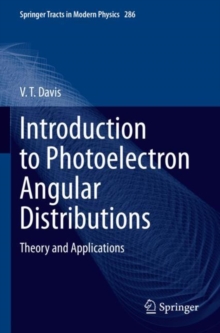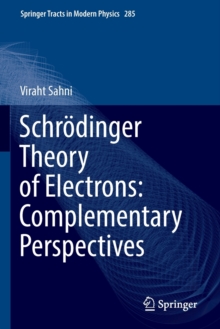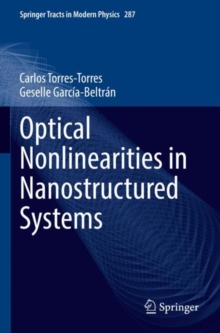
Schrodinger Theory of Electrons: Complementary Perspectives Hardback
by Viraht Sahni
Part of the Springer Tracts in Modern Physics series
Hardback
Description
This book presents a complementary perspective to Schrödinger theory of electrons in an electromagnetic field, one that does not appear in any text on quantum mechanics.
The perspective, derived from Schrödinger theory, is that of the individual electron in the sea of electrons via its temporal and stationary-state equations of motion – the ‘Quantal Newtonian’ Second and First Laws.
The Laws are in terms of ‘classical’ fields experienced by each electron, the sources of the fields being quantum-mechanical expectation values of Hermitian operators taken with respect to the wave function.
Each electron experiences the external field, and internal fields representative of properties of the system, and a field descriptive of its response.
The energies are obtained in terms of the fields. The ‘Quantal Newtonian’ Laws lead to physical insights, and new properties of the electronic system are revealed.
New mathematical understandings of Schrödinger theory emerge which show the equation to be intrinsically self-consistent. Another complimentary perspective to Schrödinger theory is its manifestation as a local effective potential theory described via Quantal Density Functional theory.
This description too is in terms of ‘classical’ fields and quantal sources.
The theory provides a rigorous physical explanation of the mapping from the interacting system to the local potential theory equivalent. The complementary perspective to stationary ground state Schrödinger theory founded in the theorems of Hohenberg and Kohn, their extension to the presence of a magnetic field and to the temporal domain – Modern Density Functional Theory -- is also described.
The new perspectives are elucidated by application to analytically solvable interacting systems.
These solutions and other relevant wave function properties are derived.
Information
-
Only a few left - usually despatched within 24 hours
- Format:Hardback
- Pages:407 pages, 41 Illustrations, color; 13 Illustrations, black and white; XVIII, 407 p. 54 illus., 41 i
- Publisher:Springer Nature Switzerland AG
- Publication Date:08/07/2022
- Category:
- ISBN:9783030974084
Other Formats
- Paperback / softback from £123.05
£129.99
£123.05
Information
-
Only a few left - usually despatched within 24 hours
- Format:Hardback
- Pages:407 pages, 41 Illustrations, color; 13 Illustrations, black and white; XVIII, 407 p. 54 illus., 41 i
- Publisher:Springer Nature Switzerland AG
- Publication Date:08/07/2022
- Category:
- ISBN:9783030974084










